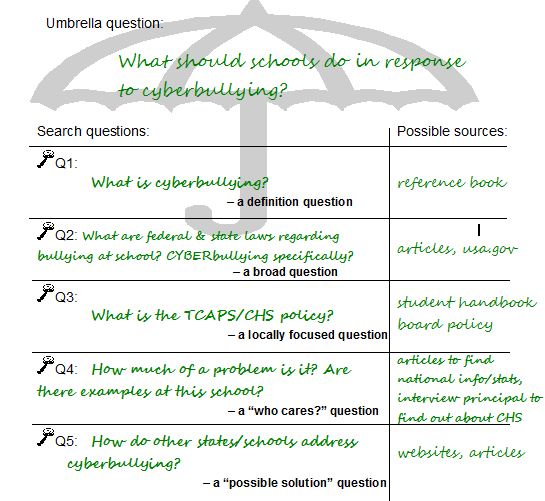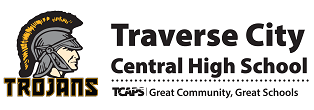12th Grade Research Guide
English 12 - Research
All the tools and tips you will need to successfully complete your 12B research project!
Getting Started
The Destination
For any assignment, especially one as involved as this, it is important that you know what your are producing as your end product. For 12B, there are three basic products:
- The discussion (~also part of the process, but something you will want to be prepared for!)
- The annotated bibliography
- The recommendation paper
See your research packet for detailed descriptions of each!
The Directions
Now that you know where you are going (aka - you know what your products will be), you need directions to get there. Listed here is the GENERAL OVERVIEW of the research process. In this research guide you will find DETAILED DIRECTIONS.
- Identify topic
- Formulate research questions
- List keywords for search terms
- Locate sources (books, articles, websites)
- Evaluate sources
- Gather and organize information
- Refine topic focus
- Draft -- revise -- draft
Keep going back and forth, looping through the research process as many times as necessary, until you have the information you need to create your products!
Generating Ideas
![]() Check out
Check out ![]() TED Talks or TED Conversations for ideas about what is wrong and right with the world and what we can do to improve. Within these talks you will often happen upon curious approaches to problems or unique possibilities for solving your dilemma. Browse around or search for specific topics.
TED Talks or TED Conversations for ideas about what is wrong and right with the world and what we can do to improve. Within these talks you will often happen upon curious approaches to problems or unique possibilities for solving your dilemma. Browse around or search for specific topics.

![]() ProCon.org does a good job of presenting both sides of issues. Topics are arranged in subject groups like Media & Entertainment or Health & Medicine. Good resource for generating topics as well as for getting your head around an issue you are interested in.
ProCon.org does a good job of presenting both sides of issues. Topics are arranged in subject groups like Media & Entertainment or Health & Medicine. Good resource for generating topics as well as for getting your head around an issue you are interested in.
Try ![]() The TC Ticker for ideas with a clear local flavor!
The TC Ticker for ideas with a clear local flavor!
Or ![]() MLive for issues affecting the state of Michigan.
MLive for issues affecting the state of Michigan.
Writing Research Questions
These questions might be the MOST important step in your process. They will guide your research process, keeping you focused and forcing you to be thorough and thoughtful. So, ask yourself, “What do I need to know to discuss this topic intelligently?” and “What evidence will I need to be convincing?”

Umbrella Question: This is the overarching question you want to answer in your paper. You are not looking for the answer to this question – it is meant to keep you on track and focused. YOU will answer it when you are well informed enough to do so! The answer to this question will likely form your thesis statement.
Search Questions: Consider – what do I need to know to answer my umbrella question intelligently? What evidence should I provide so that my readers believe me? You WILL be looking for the specific answers to these questions! They will guide the research process.
Be sure you cover all your bases with your search questions -- include a question that defines you topic, broad and locally focused questions, a "who cares?" question (this will help hook your discussion group) and a "possible solution" question (this will help with your final recommendation).
